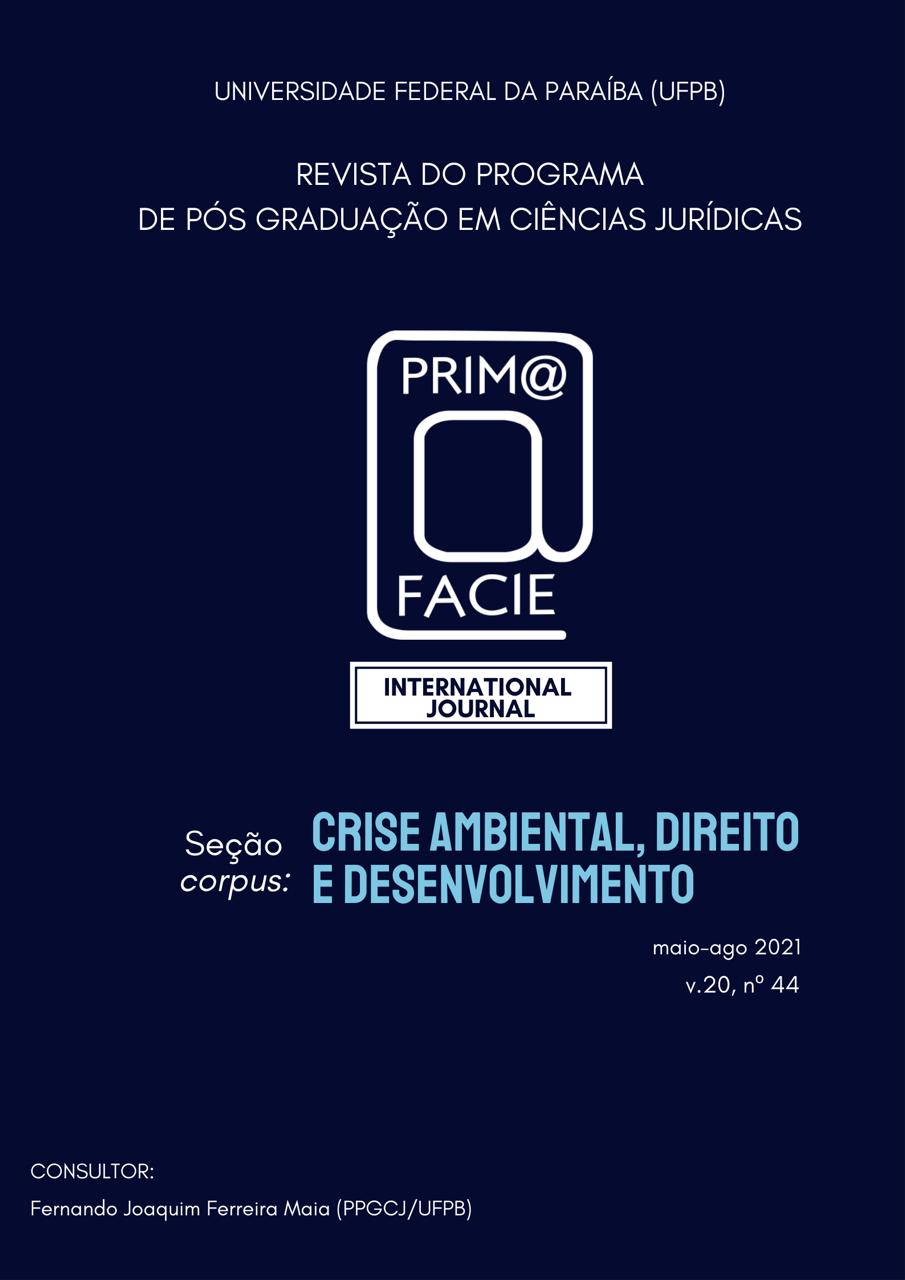O Paradigma Proprietário Da Enfiteuse No Ordenamento Jurídico Brasileiro: Entre Anacronismos E Resistências
DOI:
https://doi.org/10.22478/ufpb.1678-2593.2021v20n44.54600Palavras-chave:
Enfiteuse. Função Social da Propriedade. Segurança Jurídica.Resumo
A enfiteuse, aforamento ou emprazamento, já se configurou no Brasil como única forma de concessão de terra após abolição do regime de sesmarias. Esse paradigma proprietário antecipa em anos a função social da propriedade, através das obrigações que consubstanciam sua natureza jurídica. Hoje, após existência conturbada, o instituto foi abolido no Código Civil de 2002, contudo, as relações já constituídas seguem sendo regidas pelas disposições do Código Civil de 1916 e esta é a realidade de centenas de cidades no Brasil. Assim, objetiva-se neste artigo analisar se a enfiteuse, não obstante sua extinção legislativa, é uma realidade concreta e impactante no ordenamento jurídico brasileiro. Para tanto, aplicou-se o método hipotético-dedutivo e como procedimentos metodológicos utilizou-se a revisão bibliográfica-documental e pesquisa jurisprudencial. Os dados utilizados foram gerados nos portais eletrônicos do STF, do STJ e em cada um dos 26 Tribunais de Justiça Estaduais, mais o Tribunal de Justiça do Distrito Federal. O principal resultado indica que a extinção legislativa da enfiteuse potencialmente aumentou a insegurança jurídica das relações e a inoficiosidade. Como conclusão, tem-se que a supressão do instituto do ordenamento jurídico brasileiro se configurou, de maneira preponderante, como uma escolha político-econômica e não a partir de uma inviabilidade jurídica.
Downloads
Downloads
Publicado
Como Citar
Edição
Seção
Licença
Copyright (c) 2021 A Prim@ Facie detém direitos exclusivos de publicação e distribuição sob concessão absolutamente franca da parte do autor, ou autores.

Este trabalho está licenciado sob uma licença Creative Commons Attribution-NonCommercial-NoDerivatives 4.0 International License.
Os autores estão cientes de que transferem seus direitos de publicação e distribuição à revista Prima Facie. Os autores autorizam o uso do trabalho para fins não-comerciais, incluindo direito de enviar o trabalho em bases de dados de Acesso Livre. As provas finais poderão não ser enviadas aos autores antes da publicação, seguindo a revista seu padrão técnico explicitado nas suas normas e nos formatos praticados em acordo com a CAPES e com padrões de excelência adotados. As opiniões emitidas pelos autores são de sua exclusiva responsabilidade não sendo a revista solidária da livre opinião exposta por eles.

